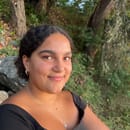Nation Addiction Awareness Week (NAAW) is an initiative to spark conversations about the harm caused by substance use in Canada. This year’s events are happening from Nov. 24th to the 30th. An estimated 21% of Canadians, about 6 million people, will meet the criteria for addiction in their lifetime. Addiction is a mental disorder categorized as a condition that causes individuals to frequently use harmful substances. The Canadian Center on Substance Use and Addiction, located in Ottawa, Ontario, hosts its National Addiction Awareness Week every November.
Raising awareness around addiction in Canada is important for normalizing conversations and de-stigmatizing addiction. Substance use is a normalized aspect of many people’s lives, however, the dangers aren’t discussed enough. Whether you partake in substance or know someone who does, it’s important to be aware of the harms and side effects they can cause.
In 2017, substance use in Canada cost almost $46 billion, this includes healthcare, lost productivity, and criminal justice. It led to more than 275,000 hospitalizations and contributed to the loss of nearly 75,000 lives. The most recent data shows that the cost of harm related to substance use was 49.1 billion, in 2020.
There are many factors that play into developing an addiction including family history, environmental factors, tolerance, dependence, and mental health struggles. People with mental illness are twice as likely to have a substance use disorder compared to the general population. In any given year, 1 in 5 Canadians experience a mental illness; statistics such as these highlight the deficit in mental health care in Canada and how it contributes to the substance abuse crisis.
Nicole Fetterly has published an amazing holistic guide to help individuals recover from alcohol and substance use. It’s called Fuel Your Recovery and it’s available on Amazon, Google Books., Friesenpress, and Barnes and Noble. She is hoping to spread awareness and de-stigmatize addiction.
Resources
In Canada, we are lucky to have some cost-friendly and free resources for mental health and addiction support. The Canada Drug Rehab Addiction Services Directory has a Toll-Free Help Line: 1.888 245 6887. Canadadrugrehab.ca is a free directory of alcohol and drug rehab programs and addiction-related services located in Canada.
Alcoholics Anonymous (AA) is a program that helps individuals with substance use disorder recover. AA has been helping people recover for more than 80 years. They offer free meetings and support for people who gather with one another to solve their drinking problem. On their website, you can type in your location and find a meeting available near you.
The Foundry Victoria is an amazing resource that offers people aged 12-24 access to substance use support, peer support, and access to mental health services. I have been using resources at the Foundry since 2020 and I recommend it to all my friends.
Families for Addiction Recovery is a national charity founded by parents of children who struggle with addiction. They strive to promote long-term recovery for those with addiction and their families. They offer Online Parent Support groups and Parent-to-Parent support. They have free phone support, Monday to Friday 12:00 p.m.- 3:00 p.m., and Wednesday evenings from 7:00 p.m. – 9:00 p.m. The number is (855) 377-6677
Drug Rehab Services is a free, confidential professional help and resource for alcohol and drug addiction in Canada. They have a list of rehabs in British Columbia on their website that include the services each centre offers. The services listed include aftercare, assessment, detoxification, holistic services, inpatient rehab, outpatient, and twelve-step programs.
The Kids Help phone is another resource that helps kids, teens, and young adults in Canada. They offer free 24/7 online mental health services that are confidential and multilingual. Their other services include; crisis support, mental health tips, and info, support forums, support for post-secondary students, and professional counselling. You can call 1-800-688-6868 or TEXT 686868 for immediate support.
SMART Recovery is a program that supports people all over the world to manage addictive and problematic behaviours. They offer 90-minute, free online or in-person meetings that focus on evidence-based methods rooted in Rational Emotive Behavioural Therapy (REBT) and Cognitive Behavioural Therapy (CBT). They help individuals build and maintain motivation, cope with urges and cravings, manage thoughts, feelings, and behaviours, and live a balanced life.
SUBSTANCE USE: If you or someone you know is seeking help for substance use, call the SAMHSA National Helpline at 1-800-662-HELP(4357).
MENTAL HEALTH: If you or someone you know is seeking help for mental health concerns, visit the National Alliance on Mental Illness (NAMI) website, or call 1-800-950-NAMI(6264). For confidential treatment referrals, visit the Substance Abuse and Mental Health Services Administration (SAMHSA) website, or call the National Helpline at 1-800-662-HELP(4357). In an emergency, contact the National Suicide Prevention Lifeline at 1-800-273-TALK(8255) or call 911.
MENTAL HEALTH IN LGBTQ+ COMMUNITIES SPECIFICALLY: If you or someone you know is seeking help for LGBTQ+ mental health or safety concerns, call The Trevor Project‘s 24/7 Lifeline at 866-4-U-TREVOR (866-488-7386). You can also reach out for instant message or text message support via TrevorChat and TrevorText, respectively. For additional resources for trans people, call the Trans Lifeline at 877-565-8860. In an emergency, contact the National Suicide Prevention Lifeline at 1-800-273-TALK (8255) or call 911.
If you are struggling with substance use disorder or know someone who is, you are not alone. I know it can be challenging to reach out for help, however, when you are ready help is near.


